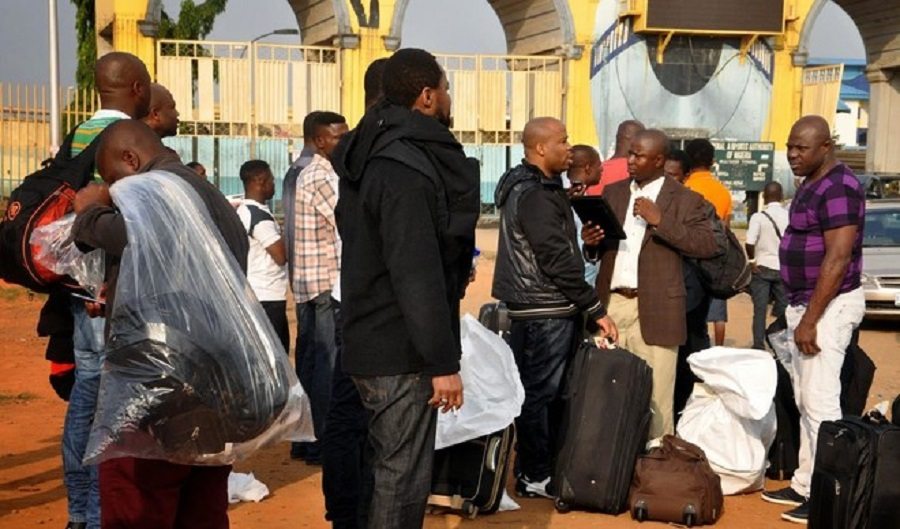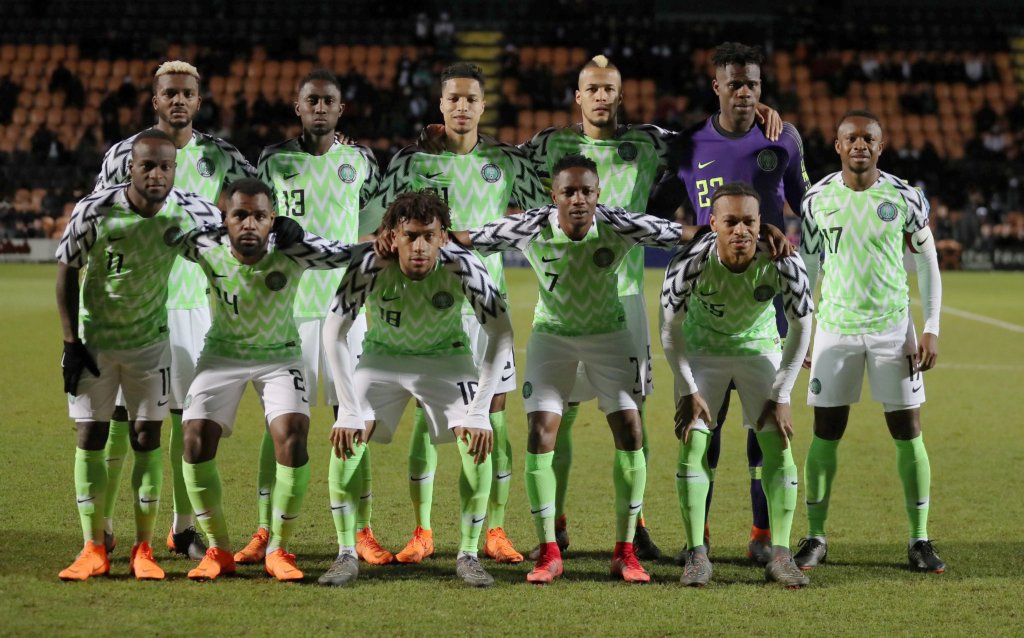The United Nations has released a new report, which detailed the unimaginable horrors Nigerian migrants were being subjected from the moment they entered Libya and throughout their stay in that country.
The report, released by the United Nations Support Mission in Libya (UNSMIL) and the UN Office of the High Commissioner for Human Rights (OHCHR), also showed the horrors of attempting to cross the Mediterranean to Europe.
Entitled: ‘Desperate and Dangerous: Report on the human rights situation of migrants and refugees in Libya’, it detailed the horrific conditions Nigerian migrants and refugees faced during their transit through and stay in Libya.
The findings were based on first-hand accounts gathered by UN human rights staff from Nigerian migrants in Libya, those who had returned to Nigeria, and Nigerians who managed to reach Italy.
The report covered 20-months up till August 2018, detailing a terrible litany of violations and abuses committed by a range of state officials, armed groups, smugglers and traffickers against migrants and refugees.
The accounts of the Nigerian migrants were mostly those of woes ranging from unlawful killings to gang rape, prostitution, arbitrary detention, torture and inhumane treatment, unpaid wages, slavery, human trafficking, racism and xenophobia.
Libyan law criminalises irregular entry into, stay in or exit from the country with a penalty of imprisonment pending deportation, without any consideration of individual circumstances or protection needs.
For instance, a 27-year-old man from Nigeria, who was held in captivity in Sabratah between May and October 2017, gave an account of death penalty in Libya.
He described witnessing a migrant being shot by a “drunk guard for no apparent reason”, and another being shot point blank over a disagreement about a sim card.
A Nigerian woman who had returned home in December 2017, gave account of rape, forced prostitution and other sexual violence.
“To be sold and forced to have sex with Arab or African men either to pay for the journey or to extract your money is a common thing to happen to you as a woman or a girl, all over the journey from day one in the desert until you depart Libya.”
A woman from Nigeria who arrived in Italy in April 2018 recounted being raped consecutively by four men, about three times a week, while held at a site in Sabha.
She described how five men would enter detainees’ cells together and concurrently rape five women.
When she arrived in Libya, she was in the early stages of pregnancy and suffered a miscarriage, she believed, as a result of rape.
She claimed that when women died at the facility, guards would just shrug and remove the bodies.
Women and girls were compelled to engage in sexual acts against their will and were under the absolute power and control of their captors, the Nigerian migrants recounted.
“In particular, Nigerian women and girls appear to be vulnerable to trafficking by multinational criminal networks in their countries of origin.
“They embark on their journeys believing office work awaits them in Europe but find themselves in so-called “connection houses” (“brothels”) in Libya,” the report stated.
A 22-year-old Nigerian woman, who was forcibly taken to a “connection house” in Tripoli’s Gergaresh neighbourhood shortly after arriving to Libya, was given a “choice” of either paying a “debt” of 24,000 Libyan dinars (then about $28,000) to her traffickers or engaging in sexual activities.
She was forced into the second option for nearly one year until the “connection house” was raided by a Tripoli-based armed group in early 2017.
She described the “connection house” as several three-bedroom flats, where an estimated 100 Nigerian women and girls aged between 15 and 22 shared rooms, using a curtain as a partition when engaged with “clients”.
The women were never allowed to leave the “connection house” or to make contact with the outside world; they had to endure being raped by up to 20 men a day.
They were not given any contraception, and several consequently got pregnant and forced to pay for dangerous abortions carried out at the “connection house”.
As they were not allowed to keep any money in their possession and therefore unable to make payments directly, their “debts” were increased instead.
The woman described seeing another victim bleed to death following an abortion.
A 19-year-old girl from Nigeria promised domestic work by her traffickers found herself in a “connection house, recounted her shock.
“At first, I refused to work. But if girls refused to work, they – connection house management and guards – would kill you or rape you and do anything they wanted to you.
“I had to stay there for nearly a year, until I paid my debt of 1.3 million Naira ($3,500),” she said.
Apparently due to her inability to pay a ransom, a 20-year-old Nigerian woman was forcibly transferred by smugglers/traffickers from a facility where she had spent one month to a “connection house” for one year and a half until March 2018.
She reported being beaten at the “connection house” in Sabha for initially refusing to engage in sex work.
As in “connection houses” in Tripoli, women and girls as young as 15 reportedly worked and slept at the facility, where they were locked up for the duration of their stay.
They were forced to receive several clients – up to 10 – per day under threat of beatings and other abuse. She reported suffering a miscarriage and not receiving any medical treatment.
A 23-year-old woman from Nigeria intercepted by the Libyan Coast Guard (LCG) off the coast of Zuwara in January 2017 recalled the panic caused when members of the LCG jumped onto their dinghy and shot in the air.
Some migrants and/or refugees were reportedly beaten with hoses and the back of rifles for refusing to point out the “captain” – or individual steering the boat – to the LCG.
A group of Nigerian men, detained at the Zuwara detention centre for two months following interception at sea in January 2018, described being beaten with water pipes and given electric shocks daily.
They also described detainees being locked up in the refrigerated back of a van used to transport perishable food as punishment.
A Nigerian man, who had lived and worked in Libya for 18 years, spent over one year held in the Mitiga detention centre without charge or trial after being handed over to SDF by armed men who kidnapped him in the street and collected a ransom from his wife.
In April 2017, he and dozens of other migrants were transferred from Mitiga detention centre to the DCIM detention centre at Tarik al-Sikka. He was deported in December 2017 for being in the country illegally.
He had no opportunity to explain that his residence had lapsed because he had been in detention. While held at the Mitiga detention centre, he was forced to construct and paint prison cells.
He was also beaten, held in solitary confinement for six months, slept on cardboard and rags and was denied medical treatment and family visits.
A group of 16 Nigerian women arrested during house raids in Misrata in late August 2017 recounted being beaten with sticks and water pipes and being given electric shocks at a local police station, while being called “whores”.
They were then transferred to al-Jawiya Prison, apparently on accusations of prostitution and alcohol consumption.
Three women in the group suffered miscarriages in the subsequent two months, possibly due to beatings upon their arrest and medical neglect while in custody.
They were not taken to the hospital when their bleeding started. One of the women, seven-month pregnant at the time, added: “I was feeling very sick. My friends (cellmates) started banging at the door.
“They (prison administration) eventually took me downstairs to give me a drip (in the local clinic), but they refused to transfer me to the hospital. When I lost the baby, I had to flush it, together with the blood clots, down the toilet.”
A Nigerian woman described to UNSMIL how “Asma boys” (as migrants refer to criminals in Libya) broke into her house, searching for money.
They beat her even though she was visibly pregnant at the time; she showed UNSMIL a scar on her arm, which she claimed she sustained when she shielded her face from an incoming knife stab.
The report said: “Countless migrants and refugees lost their lives during captivity by smugglers after being shot, tortured to death or simply left to die from starvation or medical neglect.
“Across Libya, unidentified bodies of migrants and refugees bearing gunshot wounds, torture marks and burns are frequently uncovered in rubbish bins, dry river beds, farms and the desert.’’
Tens of thousands of young men and women have been returned from Libya by the Federal Government since 2017 through the Voluntary Humanitarian Returns programme of the International Organisation for Migration.
Dame Julie Okah-Donli, Director-General, National Agency for the Prohibition of Trafficking in Persons (NAPTIP), said no fewer than 13,000 trafficked Nigerians had been rescued by the agency by March 2018.
“Some of them came back with all sorts of conditions – some treatable, some untreatable, some with hepatitis, HIV, some with full-blown AIDS,” she said, adding many of the victims have psychological problems.
“A lot of them come back mentally sick and so we have to refer them to the mental hospitals because they were traumatised, they’ve been beaten, raped and used,” she said.




